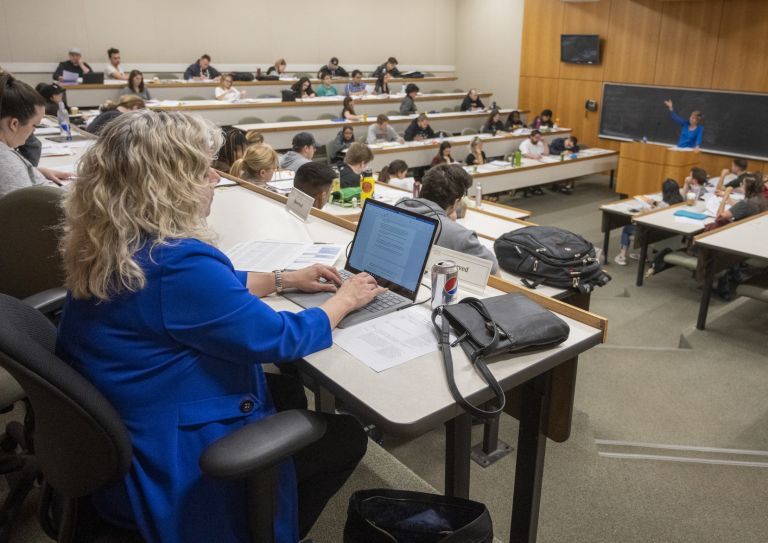The Honor Code at the University of the Pacific calls upon each student to exhibit a high degree of maturity, responsibility, and personal integrity. Students are expected to:
- Act honestly in all matters;
- Actively encourage academic integrity;
- Discourage any form of cheating or dishonesty by others; and
- Inform the instructor and appropriate University administrator if a student has a reasonable and good faith belief and substantial evidence that a violation of the Honor Code has occurred.
Conduct in conflict with the Honor Code includes, but is not limited to:
Cheating: Cheating is the willful giving or receiving of an unauthorized or dishonest advantage to/from another. Cheating may be accomplished by any means whatsoever, including, but not limited to, the following: fraud, duress, deception, theft, talking, signs, and gestures. Attempted cheating is also considered cheating. Examples of cheating include, but are not limited to:
- Use of resources not authorized by the instructor or readily available to all students in the course, including past exams, for the completion of an assignment or to study for an exam.
- Copying graded assignments from another student or giving one's work to be copied or used by another student.
- Selling work from a course completed at Pacific for money or "credit" or purchase of coursework or other unauthorized assistance from an online source.
- Working together on an assignment when not specifically permitted by the instructor.
- Looking at another student's paper during an examination, allowing a student to look at one's paper, or giving answers to another during an examination.
- Looking at text or notes during an examination when not specifically permitted by the instructor.
- Doing homework, taking an exam, writing a paper, or doing any other coursework for another student or allowing another person to do it for you, when not specifically permitted by the instructor.
- Using any technological/communication tool not authorized by the instructor during an exam.
- Engaging in behavior specifically prohibited by an instructor during class discussions, in the course syllabus, or via other course-specific communication means or tools.
Plagiarism: Presenting as one's own, the work or the opinions of someone else without proper acknowledgment. Plagiarism includes, but is not limited to:
- Failing to give credit for ideas, statements of facts, or conclusions derived by another author; failure to use quotation marks when quoting directly from another, whether it is a paragraph, a sentence, or part thereof; failure to cite properly the work of another person.
- Submitting an assignment purchased or obtained from a "research" or term paper service.
- Submitting an assignment, whole or in part, obtained from the internet or other unauthorized resources.
- Giving a speech or oral presentation written by another and claiming it as one's own work.
Other Academic Dishonesty: Other forms of academic dishonesty include, but are not limited to:
- Planning with one or more students to commit any form of academic dishonesty.
- Lying to an instructor or providing any misrepresentation of information in order to receive any academic advantage or accommodation.
- Submitting papers or speeches for credit that are substantially the same in two or more classes without prior written approval of the instructors involved.
- Removing tests from the classroom without the approval of the instructor, or misappropriating any portion of a test, either physically or electronically.
- Altering answers on a scored test or any graded work and submitting it for a higher grade without explicitly articulating the alterations made.
Honor Code Jurisdiction & Sanctioning
- Tiger Lore lists the range of sanctions for violations of the Student Code of Conduct.
- Jurisdiction for Honor Code violations includes behavior engaged in while a student is attending any study abroad program in which the student will receive credit towards a degree awarded by University of the Pacific.
- Instructors may impose academic sanctions (e.g. failing grade for the exam or course) in addition to those sanctions listed in Tiger Lore. Refer to the course syllabus for details.
- A student found responsible for a violation of the Honor Code resulting in suspension or dismissal from the University will receive a grade determined by the faculty for the course in which the violation occurred and be withdrawn from all other courses.
- In the case of suspension or dismissal, a notation of the sanction imposed will appear on the student's transcript.




